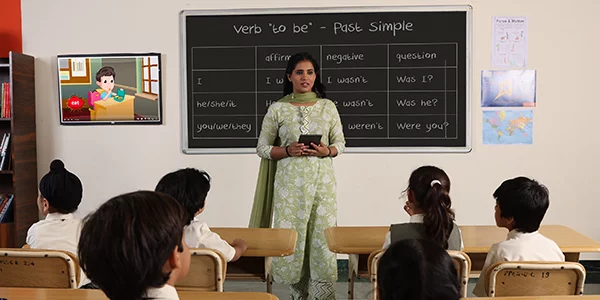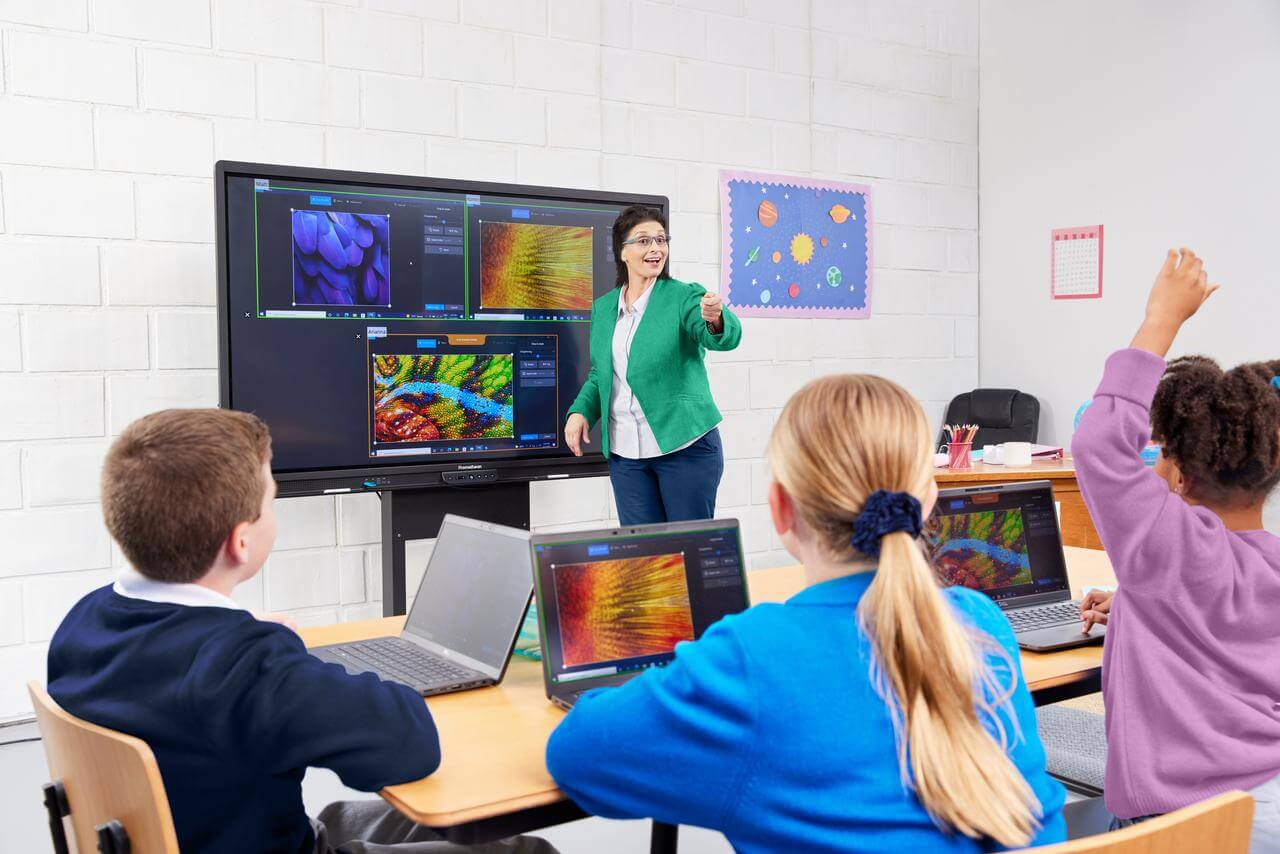Achieve Academic Success with Primary Science Tuition Singapore
Achieve Academic Success with Primary Science Tuition Singapore
Blog Article
Discover the Important Benefits of Comprehending Main Scientific Research for Young Students
The significance of primary science education for young learners extends much past mere expertise acquisition; it works as a fundamental column in establishing crucial abilities such as critical reasoning, analytical, and creative thinking. Engaging with scientific concepts through interactive and inquiry-based tasks not only grows inquisitiveness however likewise prepares for resistant, confident learners. As we discover these advantages even more, it comes to be clear that the ramifications for future scholastic and personal development are extensive. Nevertheless, what specific strategies can instructors utilize to take full advantage of these advantages?
Enhancing Essential Assuming Abilities
Promoting vital thinking abilities in young learners is essential for their cognitive advancement and future academic success. Vital reasoning enables kids to analyze info, evaluate proof, and make informed choices, which are important skills in today's information-rich society. By taking part in clinical questions, young learners can improve these skills as they discover concepts via thinking, observation, and trial and error.
In key scientific research education and learning, teachers can facilitate crucial thinking by urging students to ask inquiries, develop hypotheses, and carry out experiments. This hands-on strategy enables kids to practice problem-solving and establish sensible reasoning skills. When students examine the properties of materials or the concepts of movement, they discover to examine their findings critically and attract verdicts based on evidence.
Additionally, conversations and collective tasks can promote critical reasoning by supplying possibilities for students to articulate their thoughts, challenge assumptions, and take into consideration diverse point of views. By producing an encouraging setting that values query and reflection, instructors can nurture crucial thinking abilities that encourage young students to end up being independent thinkers and lifelong learners. Ultimately, improving these skills lays a durable foundation for their future scholastic ventures and personal development.
Fostering Interest and Expedition

Primary scientific research education offers an organized atmosphere where young learners can discover various phenomena via hands-on experiments and observations. By enabling them to engage with products and participate in inquiry-based understanding, instructors develop chances for youngsters to create theories, evaluate their concepts, and reason. Such experiences nurture a sense of marvel and excitement concerning scientific research.

Building Self-confidence in Problem Addressing
Building confidence in problem-solving is a vital part of main science education that encourages young students to come close to difficulties with strength and creativity - primary science tuition Singapore. They create essential skills in important reasoning and analysis when youngsters are encouraged to involve with clinical principles with hands-on tasks and inquiry-based discovering. This procedure not only enhances their understanding of scientific concepts however likewise cultivates a feeling of possession over their understanding
To develop self-confidence, instructors ought to develop an encouraging atmosphere where blunders are considered as chances for development instead of failures. This urges pupils to take dangers and discover various remedies to problems. By offering scaffolding and advice, educators can help trainees browse complicated tasks, progressively raising their self-reliance in problem-solving scenarios.
Furthermore, collaborative understanding experiences, such as group projects or experiments, can even more enhance students' self-confidence as they discover to express their thoughts and listen to others' perspectives. These interactions support social skills and enhance the concept that analytical is typically a cumulative undertaking. Eventually, growing self-confidence in problem-solving prepares young learners for future scholastic obstacles and furnishes them with the devices necessary for lifelong understanding.
Motivating Imagination and Innovation
In the world of primary science education and learning, urging creative thinking and advancement is essential for cultivating a vibrant understanding atmosphere. By cultivating a society where young learners can check out ideas and experiment freely, educators aid trainees create crucial believing abilities and an enthusiasm for exploration. Imagination in scientific research urges kids to ask concerns, design hypotheses, and take part in hands-on activities that boost their creative imagination.
Integrating flexible jobs and inquiry-based learning right into the curriculum allows trainees to reveal their distinct viewpoints and remedies. When charged with resolving a problem relevant to their setting, trainees can conceptualize multiple strategies, leading to innovative end results that display their originality. This not only grows their understanding of scientific concepts but likewise instills a sense of ownership over their understanding procedure.
Moreover, creative science education supports collaboration amongst peers, as students often share ideas and improve one another's helpful resources insights - primary science tuition Singapore. This joint spirit promotes not only innovation but additionally important social skills. Therefore, by focusing on creative thinking and innovation in key scientific research education, we equip young students to assume seriously, accept difficulties, and picture possibilities, laying a solid structure for long-lasting discovering and exploration
Preparing for Future Discovering Obstacles
Young students' ability to navigate future discovering difficulties depends upon a solid foundation in primary science education and learning. This fundamental understanding furnishes pupils with critical thinking abilities and a systematic strategy to analytical, crucial for taking on complicated problems in an ever-evolving globe. Main scientific research cultivates inquiry-based understanding, encouraging students to ask questions, check out hypotheses, and participate in hands-on experiments.
As they develop these abilities, students come to be proficient at assessing information, recognizing patterns, and drawing notified conclusions. Such proficiencies are crucial not just in clinical fields however likewise in innovation, math, and design (STEM), where interdisciplinary expertise is increasingly crucial.
Additionally, main scientific research education grows a sense of inquisitiveness and durability in young students, allowing them to check out obstacles as opportunities for growth. As they experience and conquer obstacles in their clinical explorations, they construct confidence in their capacity to introduce and adapt.
Eventually, a solid foundation in primary scientific research not just prepares young students for scholastic searches but likewise furnishes them with the tools necessary for lifelong learning and adaptability in a rapidly altering international landscape. By buying main scientific research education and learning, we are purchasing the future possibility of our learners.
Final Thought
Comprehending main science is vital for young students, as it promotes critical reasoning, inquisitiveness, and imagination. Involving with scientific concepts via hands-on experiments constructs and improves analytical capabilities strength. This fundamental knowledge not just gears up pupils to evaluate data and acknowledge patterns but additionally supports an inquiry-based frame of mind. Eventually, the advantages of key scientific research education prepare youngsters for future academic pursuits and instill lifelong discovering practices crucial for prospering in an ever-evolving globe.
The relevance of key science education for young learners expands much beyond simple understanding purchase; it offers as an essential pillar in developing necessary abilities such as important thinking, analytic, and creativity. By developing an encouraging atmosphere that values questions and representation, instructors can support essential believing skills that encourage young students to end up being long-lasting learners and independent thinkers. Hence, by prioritizing imagination and advancement in key science education, we encourage young students to think seriously, embrace challenges, look at this website and picture opportunities, laying her explanation a solid foundation for lifelong understanding and exploration.
Young learners' capability to navigate future learning difficulties pivots on a solid structure in main scientific research education.Understanding main science is important for young learners, as it cultivates vital thinking, curiosity, and creative thinking.
Report this page